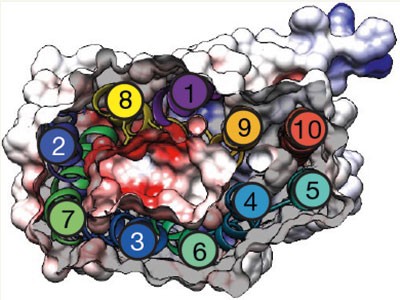Malaria parasites fine-tune mutations to resist drugs
Date: 9.12.2019
Drug resistance in malaria parasites is mediated by mutations in a transporter protein. The transporter’s structure reveals the molecular basis of how key mutations bring about resistance to different drugs.
 About half a million people, most of them children living in Africa, are killed each year by malaria1. Management of malaria, particularly that caused by the highly virulent protozoan parasite Plasmodium falciparum, is challenged by the emergence of resistance to antimalarial drugs.
About half a million people, most of them children living in Africa, are killed each year by malaria1. Management of malaria, particularly that caused by the highly virulent protozoan parasite Plasmodium falciparum, is challenged by the emergence of resistance to antimalarial drugs.
Jonathan Kim et al. report the structure and molecular properties of a key protein that facilitates resistance, the P. falciparum chloroquine-resistance transporter (PfCRT). The structure reveals the consequences of finely tuned mutations of the amino-acid residues that line a crucial central cavity in PfCRT. These mutated residues allow resistant parasites to transport certain antimalarial drugs away from their site of action – and the effect of the mutations is different for closely related drugs.
On a practical level, it is particularly important to understand the mechanisms of resistance that are likely to arise in Africa, where more than 90% of cases of malaria caused by P. falciparum occur.























